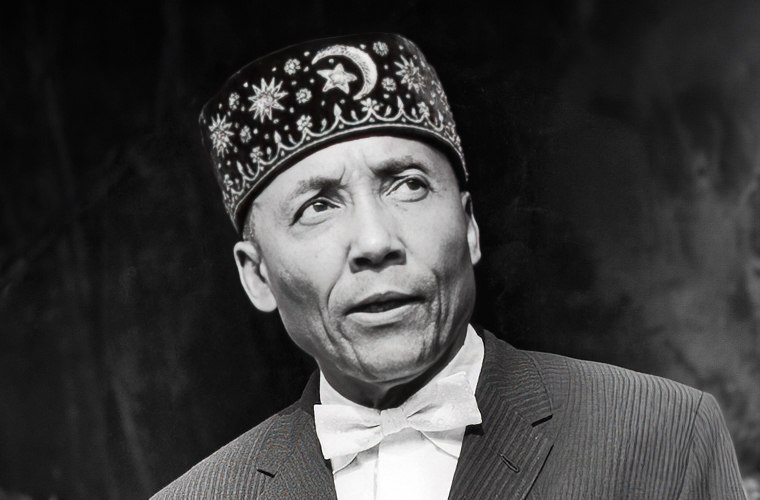Elijah Muhammad was an influential leader and a prominent figure in the history of the Nation of Islam. Born on October 7, 1897, in Sandersville, Georgia, he played a pivotal role in shaping the beliefs and practices of the Nation of Islam, and his teachings continue to impact the lives of many individuals today. Muhammad’s early life was marked by adversity and struggle. Growing up in a racially segregated America, he experienced firsthand the injustices and inequalities that were pervasive during that time. These experiences would later shape his worldview and influence his commitment to fighting for the rights and empowerment of African Americans.
In 1931, Elijah Muhammad met and became a disciple of the Nation of Islam’s founder, Master Fard Muhammad. Under Fard’s guidance, Elijah Muhammad began to spread the teachings of the Nation of Islam, advocating for black pride, self-reliance, and the establishment of a separate black state. His powerful oratory skills and unwavering dedication to the cause quickly garnered him a following and solidified his position as a key figure within the movement.
As the leader of the Nation of Islam, Elijah Muhammad emphasized the importance of economic self-sufficiency and moral uprightness within the black community. He encouraged his followers to eschew vices such as alcohol and drugs, and instead focus on personal development and community building. His teachings resonated with many African Americans who sought to reclaim their dignity and assert their identity in the face of systemic oppression.
Under Elijah Muhammad’s leadership, the Nation of Islam experienced significant growth and expansion. He established numerous temples and institutions across the United States, providing a platform for black empowerment and social activism. His efforts helped to galvanize a sense of unity and purpose within the black community, inspiring individuals to strive for excellence and upliftment.
Elijah Muhammad’s impact extended beyond the confines of the Nation of Islam. He was a vocal advocate for civil rights and social justice, using his platform to address issues such as police brutality, economic inequality, and educational disparities. His unwavering commitment to addressing these pressing concerns earned him respect and admiration from both within and outside the black community.
Despite facing opposition and criticism, Elijah Muhammad remained steadfast in his mission to uplift and empower African Americans. His legacy continues to inspire countless individuals who are dedicated to advancing the cause of social justice and equality.
In conclusion, Elijah Muhammad’s contributions to the Nation of Islam and the broader struggle for civil rights have left an indelible mark on American history. His teachings continue to resonate with those who seek to challenge injustice and champion the rights of marginalized communities. As we reflect on his legacy, we are reminded of the enduring power of resilience, determination, and unwavering commitment to creating a more just and equitable society.


